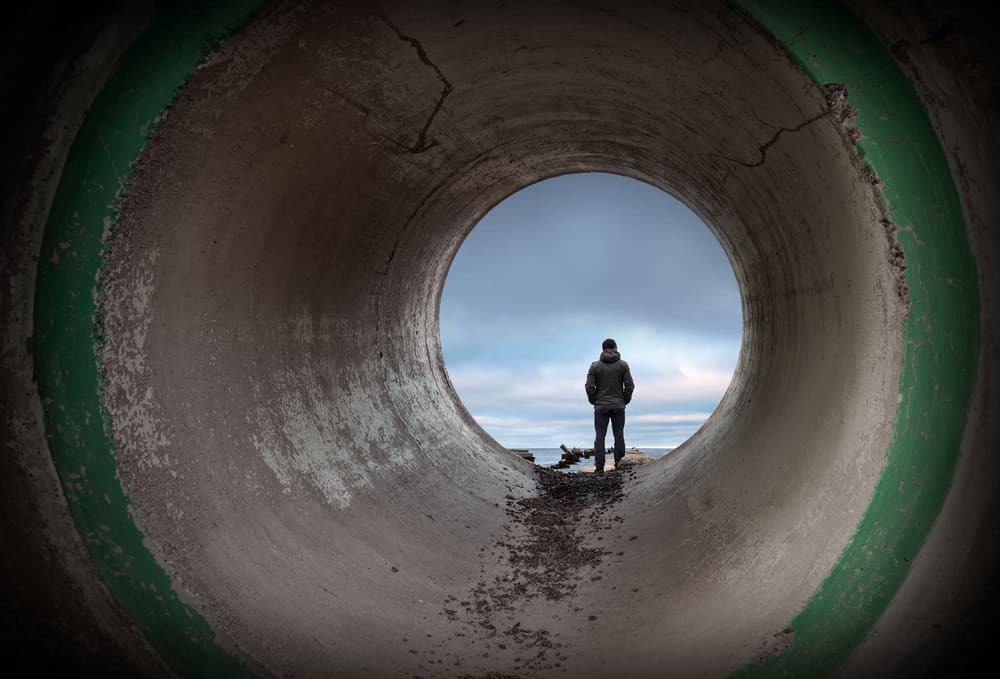Cocaine addiction affects millions of Americans each year. The most recent information provided by the National Institute on Drug Abuse says cocaine accounts for nearly six percent of all admissions to drug addiction treatment programs and people are likely to use more than one type of drug in addition to cocaine.
Signs of cocaine use and addiction often include drastic mood swings, restlessness, dilated pupils, tremors, and increased blood pressure, among others. For those unfamiliar with the complex, dangerous nature of cocaine use, you might think stopping an addiction is as easy as a shift in mindset. In reality, addiction is a disease and has to be treated as one, which means it takes months of healing and recovery versus a quick solution.
Fortunately, there are both pharmacological and behavioral types of therapy that can be customized to treat each person individually based on what their unique needs and goals are. Though the structure of treatment at a rehabilitation center is similar for anyone who is seeking help with cocaine addiction, how that treatment is distributed, followed, and maintained is up to each person and the care team.
Learning how to treat cocaine addiction means identifying it as a disease that requires time, therapy, and proactive work in order to heal and reach a sustainable sober state. Although it’d be nice to heal right away from the damage that addiction has caused, in order to prevent it from happening again, going through the process one day at a time is important.
Pharmacological Treatment Solutions
Cocaine is a stimulant that changes the communication of the brain’s signals, particularly those that are responsible for emotions and feelings of pleasure and happiness. There are no current approved medications that treat cocaine addiction, although there is still research being done. However, there are medications that may ease withdrawal symptoms during the difficult time of cocaine detox.
For example, there is evidence that Vigabatrin, a prescribed anticonvulsant, has reduced cocaine-reduced dopamine released by 25 percent or more in lab animals. The aim of this type of drug is to reduce cravings and relapse during the detox period.
Propranolol is another tested medication that has shown promise to treat cocaine withdrawal symptoms. It is a beta blocker that helps to manage anxiety and restlessness. It may also reduce some of the other uncomfortable cocaine addiction symptoms associated with cravings.
These are two of the potential pharmacological treatment solutions that may reduce cravings and better manage pain symptoms. Keep in mind, they do not work the same for all and may not be the chosen solution for your course of treatment. The reason for using medication as part of cocaine addiction treatment is to prevent relapse and ease pain and discomfort as much as possible during the withdrawal stage.
That’s why turning to a medically managed solution as part of cocaine addiction treatment is essential. A specialized team of therapists will assess your situation on an individual level. They will also be able to monitor reactions to any medication, if they’re working correctly, and any other assessments regarding your physical and mental health.
There’s no way to predict the effects of cocaine abuse on the body or how it will react to withdrawal symptoms. You shouldn’t have to go through this difficult process by yourself. Receiving professional help to treat the disease is the key.
Cognitive Behavioral Therapy
Drug detoxification is always the first step of any treatment, but doesn’t have a likelihood of prolonged success without the implementation of cognitive behavioral therapy as well. These programs are available as residential and outpatient plans and often, a combination of both. Again, with the encouragement of your assigned care team, you’ll come up with a game plan together. This will include strategies, tools, and emotional support as you eventually manage your sobriety on your own.
Cognitive behavioral treatment is effective for preventing relapse. The goal is to help people who are addicted to cocaine to develop coping skills needed to support drug abstinence for the long-term. By identifying what caused the cocaine use to begin with, it will also start to uncover what solutions to put in place when faced with the temptation again.
Residential Rehab
The first step following detox is residential rehab. This offers a calm, dedicated space where you are able to fully focus on your recovery without any negative distractions or influences. It starts to answer the questions of when and how the drug abuse started. The recommended stay is 90 days, but is flexible and adaptable to your specific needs. It is a gender-responsive treatment program, which means there are separate courses of care for men and women. Research has shown this to be valuable since each gender requires a different approach and this proves to be more effective.
By proceeding with treatment in a safe, nurturing environment, it sets a structure in place that’s essential to build upon. A typical day includes a schedule of program-specific group intensives, yoga or other physical exercise, individual therapy sessions, experiential outdoor group activities, and set time for meditation, meals, and solo reflection. Not every treatment plan is exactly the same. It’s flexible enough to change over the course of the stay to focus the majority of time and attention to what is moving the recovery along at a healthy pace.
Intensive Outpatient Care
Intensive outpatient care is the proposed next step in recovery after residential rehab. It can also be a standalone option for those who have gone through rehab before and require additional assistance and accountability to prevent a relapse.
Rather than thinking of drug addiction as a disease to be cured, think of it as one that requires ongoing prevention management and self-care. This requires knowing where to turn when you need extra support to get back on track. Even with a relapse, intensive outpatient care can help you start again rather than spiraling back down the cycle of addiction.
This treatment has greater flexibility in scheduling since it doesn’t require a residential stay. A person who has established a safe, sober living situation is eligible to participate in this program, after they’ve gone through detox. It requires 12 hours of participation per week. The treatment focuses on solidifying your newly sober lifestyle through ongoing motivation, guidance, and accountability of your peers and treatment team. This often lasts for four months as part of the full continuum of care.
Addiction Support Services
One of the most important parts of treatment is preparing for real life without addiction. After being equipped with the strategies and tools to take with you into your everyday world, it’s helpful to have comfort in knowing there is always support readily available in all capacities. Support groups provide accountability, while sober living housing provides a gentler transition to living on your own again and following a healthy lifestyle.
As part of this transition, there are programs that are focused on different areas of a person’s life that will help them reach accomplishments that may have been put on hold due to the drug addiction. This may be looking for a new job or enrolling in school full-time. It may also mean reconnecting with estranged family members or diving deeper into the effects of trauma you may have experienced throughout your life.
Through the specialized programs that Northbound has, including CollegeBound®, CareerBound®, and the Family Program, among others, it gives you the focus you need most to move forward with sobriety and sustain it for the long-term. There is life after addiction, one that is full of promise and happiness. Each of these phases of care will help to build that hope and show you ways to make it happen.
What Is the Best Treatment for Me?
For most, the best treatment is a combination of pharmacological and cognitive behavioral therapy. Certain medications can regulate the intense reactions experienced in the early days and weeks of withdrawal. Although, it’s the foundation of behavioral therapy that allows you to focus on what to do in the future when faced with cravings or temptation again. Not everyone requires medication as part of their treatment plan, but everyone needs behavioral care to increase the success of maintaining sobriety.
With each phase, there is flexibility available to adjust to each person’s pace and physical and mental needs. Healing happens differently for everyone. Not everyone’s treatment will look exactly the same. Some may continually push forward into the next phase of care without any setbacks, while others may struggle with relapse that prolongs the time. The best kind of cocaine treatment is what works best for you.
Anyone who has struggled with cocaine addiction may have a similar story or find there is commonality in a few things, but overall, no one has the exact same experience, which means a blanket treatment plan won’t work. It takes combining the structural foundation of cocaine detox, residential rehab, intensive outpatient care, and addiction support services with the individual needs as set out by you and your care team.
Wherever your path takes you and however long it takes you to reach a place where you can manage your sobriety, remember there are people who are ready to support you in any way possible.
Sources:
- “How Is Cocaine Addiction Treated? | National Institute on Drug Abuse.” Drugabuse.gov. N.p., n.d., https://www.drugabuse.gov/publications/research-reports/cocaine/what-treatments-are-effective-cocaine-abusers
- Kampman, Kyle M. “New Medications for the Treatment of Cocaine Dependence.” Psychiatry (Edgmont (Pa.: Township)) 2.12 (2005): 44–48. Print., https://www.ncbi.nlm.nih.gov/pmc/articles/PMC2994240/
- Shorter, Daryl, and Thomas R. Kosten. “Novel Pharmacotherapeutic Treatments for Cocaine Addiction.” BMC medicine 9.1 (2011): n. pag.,https://bmcmedicine.biomedcentral.com/articles/10.1186/1741-7015-9-119
Author
-

President, CEO & Founder at Northbound Treatment Network
Paul Alexander is the CEO, President & Founder of Northbound Treatment Network in Newport Beach, California. He believes wholeheartedly in transformational leadership, organizational health and effective, fully integrated substance use disorder and mental health treatment. With over 27 years of experience in behavioral healthcare, Paul has extensive knowledge of “in vivo” treatment modalities, clinical development, operations, strategy, marketing and financial planning. He has been widely recognized for his development of collegiate-based residential treatment programs for students in recovery and authored a research study at The University of California confirming this modality’s effectiveness.
Paul’s comprehensive professional experience, willingness to innovate, and emphasis on organizational health are vital factors in Northbound’s continued success. Paul received his Certified Addiction Treatment Specialist training at Saddleback College in Mission Viejo, CA, and was awarded Outstanding Alumni Service Award in 2002. Paul holds a Bachelor of Arts degree in Criminology, Law and Society, Summa Cum Laude, from University of California, Irvine, and a Juris Doctorate degree from Loyola Law School of Los Angeles. Paul currently serves on The National Association of Addiction Treatment Providers (NAATP) board. In addition, he serves on The Family Recovery Foundation board and The CarePossible board in Orange County; both organizations are committed to raising funds for family recovery and treatment for former military personnel. Paul is in recovery himself and lives in Orange County with his wife Silvana and his two young sons, Noah and Dean.










